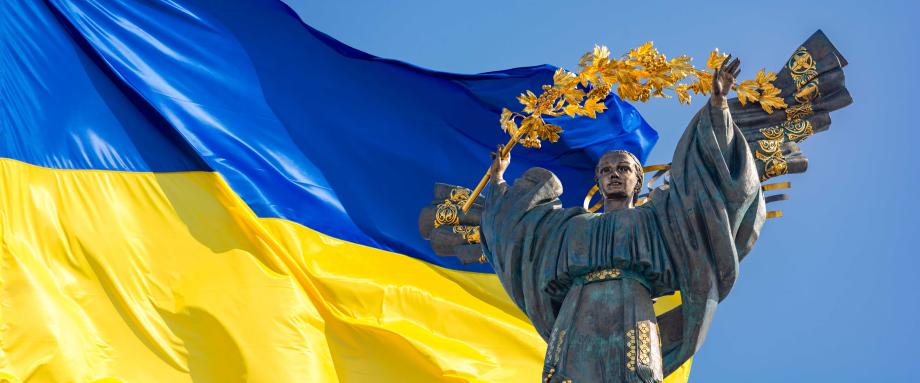Ukraine: 365 Days of War

A year ago, Russian troops launched an unprovoked military invasion in Ukraine. This war has transformed the European continent and brought about extensive ramifications for our societies and political and security reality. Since then, Ukrainians have demonstrated incredible resistance and resilience in their fight against the Russian army, in an intense conflict that now risks turning into a war of attrition.
GLOBSEC talked with international security experts and scholars in Brussels to get their thoughts and opinions on the war in Ukraine, during an online conversation as well as a questionnaire.
The participants remembered the first months of the war and highlighted the shock and emotion they felt following the invasion. For many of them, the 24th saw a realisation of something they thought unthinkable.
“24th February 2022 was the worst day of my life as well as in lives of many Ukrainians, despite warnings and news we all did not believe it will happen. Not in XXI century, not in Europe, not with the world order we created.”
“There is your emotional side, which wants to scream and cry. But there is also your rational side which seeks to look for way out, support, what can one do to reach victory of Ukraine faster.”
Sofiia Shevchuk, founder, VONA
As the new reality sank in, the bravery of Ukraine inspired its partner countries to support the country against the Russian aggression, hope began to emerge. They shared personal stories of helping and welcoming refugees, highlighted the solidarity of normal people, and share how it impacted their life.
“For the first time ever, I started being political on social media and shared a lot of content and donation opportunities for Ukraine.”
Katarina Javorcekova, Student, Oxford University
A large part of the discussion also focused how attitudes in Europe towards Ukraine and Russia have rapidly shifted the past year. Europeans began to widely engage and be involved with the Ukrainian people and culture. Those who left the country have also endeavoured to promote their homeland wherever they are staying.
At the same time this change was also noticeable in the European institutions, which adopted strong policies and resolutions in response to the Russian aggression. The involvement of key and charismatic Ukrainian political figures contributed to generating a large support for Kyiv. Looking forward, it will be paramount to keep a high level of support for Ukraine against Russia’s attempt to annex the country.
“We must supply Ukraine with more weapons, including anti-air defence systems and aeroplanes. We also need to put more sanctions against Russia so Putin will not be able to wage this brutal war. If the Ukrainian army gets the weapons and training it needs, it can launch a successful counteroffensive that will push out Russian troops from the occupied Ukrainian territory.”
Vladimir Bilcik, MEP, Chair of the Delegation to the EU-Montenegro Stabilisation and Association Parliamentary Committee
In all likelihood, 2023 will bring numerous challenges, to prevent Russia’s advance and protect the Ukrainian people. At the political level, the question of durable solutions is now central, including via the integration into the European Union, and a possible NATO membership. Key wake-up calls were missed in the past, such as with Georgia in 2008 and Crimea in 2014; however, the narrative has now changed and perspectives on Russia and Putin have evolved. 2022 proved that Ukraine can outperform all expectations and we could see major achievements in the coming year if Ukraine is provided with the right support.
“Putin turned out to be much weaker than Western analysts thought. It remains the case today. The West should push for a decisive Ukrainian victory, which is the only way to avoid protracted conflict with potential for Putin to regain advantage.”
Vladimir Milov, Vice-president, Free Russia Foundation, Former Deputy Minister of Energy of Russia
“I hope that the West will deliver enough of weapons to Ukraine in order to achieve victory, that the EU will make decision to start negotiations for membership, and that the Vilnius NATO Summit will make an invitation for Ukraine to become member of the Alliance.”
Andrius Kubilius, MEP, Chair of the Delegation to the Euronest Parliamentary Assembly, and former Prime Minister of Lithuania
“The Ukrainian army has proved that there is nothing impossible for us. Once all territories in the eastern part of the country will be regained back, Crimea will be the next step. Occupation of Crimea was illegal as all the other military actions conducted by Russian army at the territory of Ukraine. Crimea is not different from other regions - Crimea is Ukraine.”
Sofiia Shevchuk, founder, VONA
Slava Ukraini!
